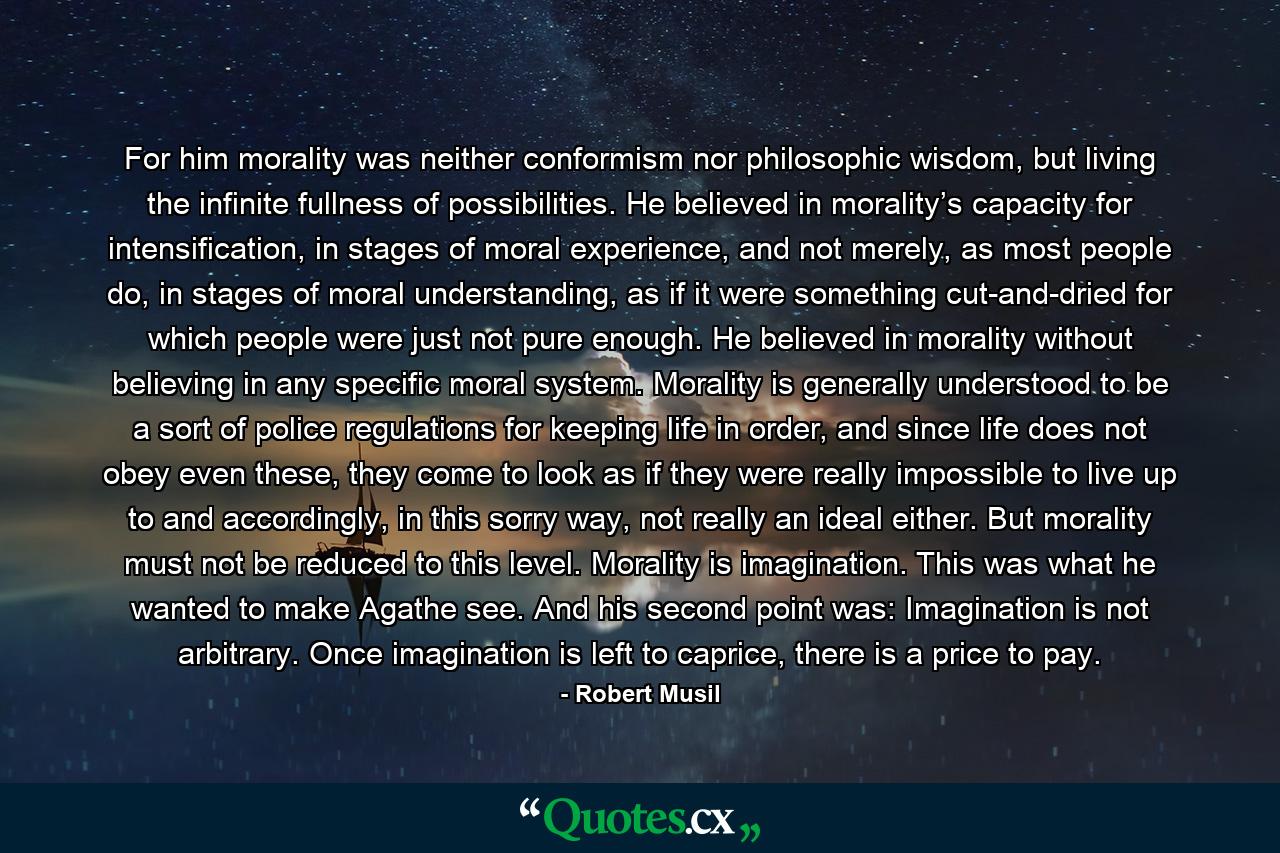For him morality was neither conformism nor philosophic wisdom, but living the infinite fullness of possibilities. He believed in morality’s capacity for intensification, in stages of moral experience, and not merely, as most people do, in stages of moral understanding, as if it were something cut-and-dried for which people were just not pure enough. He believed in morality without believing in any specific moral system. Morality is generally understood to be a sort of police regulations for keeping life in order, and since life does not obey even these, they come to look as if they were really impossible to live up to and accordingly, in this sorry way, not really an ideal either. But morality must not be reduced to this level. Morality is imagination. This was what he wanted to make Agathe see. And his second point was: Imagination is not arbitrary. Once imagination is left to caprice, there is a price to pay.
